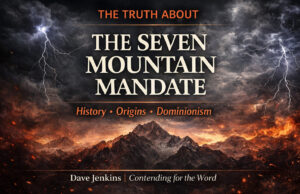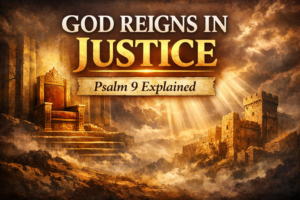⏱️ Estimated Reading Time: 9 min read
Introduction
Colossians 3:5-17 falls within the broader section of Colossians 3:5-4:6 in which Paul gives instructions on living the Christian life. Based on their death and resurrection with Christ and the hope of future life with Him, Paul encourages the Colossians to continue eliminating sinful behaviors from their lives and cultivating Christian virtues. In Colossians 3:5-11 Paul is dealing with the sins of the past. Here Paul calls the Colossians to make a decisive break with the sinful tendencies they have carried with them in their Christian lives. In Colossians 3:12-17 Paul calls the Colossians to a holy lifestyle, consistent with their new identity in Christ. Believers have been chosen by God and stand before him as his beloved holy ones. They are to live up to what they are in Christ.
Explanation of Colossians 3:5-16
“Put to death what is earthly,” in Colossians 3:5, is possible because believer have died with Christ (2:20; 3:3), so they can get rid of sinful practices (Rom. 6:11; 8:13). The language of putting to death indicates that Christians have to take severe measures to conquer sin. Calvin calls this putting to death mortification.[1] Watchfulness and prayerfulness against it will be the first steps (Matthew 26:41), with self-discipline following (Matthew. 5:29-30). Sexual immorality refers to every kind of sexual activity outside of marriage. Five of the items that Paul lists have to do with sexual purity, stressing the importance of bringing this rest of life under the control and lordship of Christ. Greed, sexual sin, and other vices can intrude into one’s relationship with God, taking His place as a focus of devotion.
In line with the Old Testament prophets, who spoke of the Day of the Lord as a time of coming wrath (Zeph. 1:14-15), Paul reminds the Colossians that God will suddenly intervene in human history and will hold everyone accountable. Those who live evil lives will face final judgment. Paul lists five more vices in v.8 that Christians need to get rid of. These five all have a bearing on social relationships among believers.
Paul picks up in Colossians 3:9-10 where he has said earlier about Christ circumcising Christians by removing the body of the flesh (Colossians 2:11). Here he employs the metaphor of taking off and putting on clothing. The aorist tense of the two participles suggests that it is an even that has already taken place. A qualitative change of identity has already occurred in the lives of believers. It is now only remains for them to bring their behavior into line with their new identity in Christ (Rom. 6:6; Eph. 4:24). Being renewed (present tense) indicates that the transformation of Christians is an ongoing process.
There are no status distinctions between the new people of God (Gal. 3:28). No one has a special claim on God or is treated with less dignity than any other. Scythians were a people group located along the northern coast of the Black Sea. To the Greeks the Scythians were a violent, uncivilized and altogether inferior people. In contrast to such discrimination and prejudice against races and cultures, Paul shows that Jesus who is all, and in all, binds all Christians together in equality irrespective of such difference.
Above all else, Christians are called to love one another. Binds together suggest that love unites all the virtues. The word of Christ refers to the teaching about Christ as well as the words of Christ himself, which were part of the oral traditions passed on to believers in the early years after Christ ascended to heaven before the Gospels has been written. The centrality of Christ does not diminish the Father but brings Him glory.
Put off Put on
Put to death refers to a conscious effort to slay the remaining sin in our flesh. Impurity goes beyond sexual acts of sin to encompass evil thoughts and intentions. Passions and evil desire refers to sexual lust. Passion is the physical side of that vice and evil desire is the mental side. Covetousness refers to having more. It is the insatiable desire to gain more especially of what is forbidden. When people engage in either greed of the sexual sins Paul has catalogued, they follow their desires rather than God’s, in essence worshipping themselves, which is idolatry.
“Put away” comes from a Greek word used for taking off clothes. Like one who removes his dirty clothes at day’s end, believers must discard the filthy garments of their old, sinful lives. Anger is a deep, smoldering bitterness; the settled heart attitude of an angry person (Eph. 4:31; James 1:19-20). Wrath is unlike God’s settled and righteousness anger is here a sudden outburst of sinful anger, usually the eruption that flows out of anger. Malice comes from the Greek term that denotes a general moral evil. It refers here to the damage done by evil speech. To slander people is to blaspheme God.
Put on put off in Colossians 3:9-10 are the basis for the command of v.8. Since the old man died in Christ and the new man lives in Christ, because that is the fact of being a new creation in Christ (2 Cor. 5:17) the believer must put off remaining sinful deeds and be continually renewed into the Christlikeness of which they are called. The new regenerate self, which replaces the old self, is the essence of what believers are in Christ. The reason believers still sin is their unredeemed flesh. The Greek word for renewed constitutes a sense of contrast with the former reality. It describes a new quality of life that never before existed. Just like a baby is born complete but immature, the new self is complete, but has the capacity to grow. Knowledge is a deep through knowledge, without which they can be no spiritual growth or renewal. It is God’s plan that believers become progressively more like Jesus Christ, the one who made them.
In view of what God has done through Jesus Christ for the believer, Paul described the behavior and attitudes God expects in response in vv.12-17. God’s chosen designates true Christians as those who have been chosen by God. No one is converted solely by his or her own choice, but only in response to God’s effectual call. Election means believers are the objects of God’s incomprehensible and special love. Compassionate hearts is a Hebraism that connotes the internal organs of the human body as used figuratively to describe the seat of human emotions Kindness refers to a goodness towards others that pervades the entire, person, mellowing all harsh aspects. Humility is the perfect antidote to self-love that poisons human relationships. Meekness is the willingness to suffer injury or insult rather than to inflict such hurt. Patience is also translated as longsuffering; the opposite of quick anger, resentment, or revenge and thus epitomized Jesus Christ. It endures injustice and troublesome circumstances with hope for coming relief. As the Lord has forgiven is only possible because Christi s the model of forgiveness and has forgiven all our sins totally, therefore believers must be willing to forgive others.
Supernatural love poured out into the hearts of believers is the adhesive of the church. The Greek word peace here refers to the “call of God to salvation” and the consequential peace with Him, as well as the attitude of rest or security believers have because of that eternal peace. The word of Christ is Scripture, the Holy-Spirit inspired Scripture, the word of revelation He brought into the world. Scripture should permeate every aspect of the believer’s life and control every thought, word, and deed. This concept is parallel to being filled with the Spirit in Eph. 5:18 since the results of each are the same. In Eph. 5:18, the power and motivation for the effects is the filling of the Holy Spirit; here it is the word richly dwelling. Those two realities are one, the Holy Spirit fills the life controlled by His word. This emphasizes that the filling of the Spirit is not some ecstatic or emotional experience, but is a steady controlling of the life by obedience to the truth of God’s Word. Do everything in the name of the Lord Jesus means to act consistently with who He is and what He wants.
How do I put off the flesh and put on Christ?
Putting off the flesh and putting on Christ to me means appropriating what Christ has done in His death, burial and resurrection. Practically, I find reading my Bible, living in community with other believers, listening to worship music as I work, and spending time in prayer to be helpful on putting off the flesh and putting on Christ. The most helpful of these activities is listening to music especially when I’m tempted because it focuses my heart on God and not on the temptation. I’ve also found that preaching the Gospel to myself to be a helpful discipline. Along the same lines as preaching the Gospel to myself I also regularly preach the message I’m going to preach to others to myself and find that this helps me to examine my own heart which helps me preach the Gospel with authority.
Conclusion
A Gospel-empowered believer rests in his or her identity in Christ. In his Epistles, the Apostle Paul often used the expression “in Christ.” One cannot come close to addressing the breath of this phrase, but to be “in Christ” means to share in Christ’s death and resurrection, and to be placed under the headship of Christ rather than under the curse of Adam. It means that Christ is the all-sufficient Lord and Savior who helps the believer to gradually grow in Christ.[2] Christ’s death and resurrection are the foundations of the Gospel-driven life and the basis by which the believer lives out their new identity under the kingship of Christ.
[1] John Calvin, Commentary on Galatians, Ephesians, Philippians, Colossians, I & II Thessalonians, I & II Timothy, Titus & Philemon trans. William Pringle (Grand Rapids: Eerdmans, 1949, reprint from 1610), 208.
[2] William Hendriksen, Galatians, Ephesians, Philippians, Colossians, and Philemon (Grand Rapids, Baker, 2007), 154..



